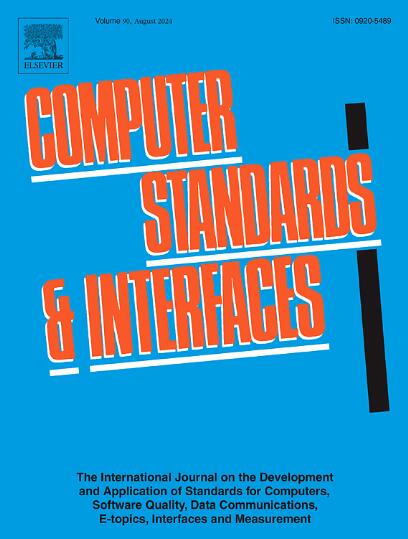一个基于SM2环签名的广播加密的云数据共享方案
IF 3.1
2区 计算机科学
Q1 COMPUTER SCIENCE, HARDWARE & ARCHITECTURE
引用次数: 0
摘要
随着云计算的兴起,基于云的数据共享得到了广泛的应用。然而,在基于云的共享中,需要保证数据的可靠性,保证数据的完整性,保护用户的身份。传统的环签名算法虽然能够提供较强的数据可靠性和隐私保护,但难以对签名者的真实身份进行仲裁。本文提出了一种适用于安全云数据共享的SM2环签名广播加密方案。通过引入第三方,我们生成签名者的身份标签,当我们生成签名值和撤销标签时,该身份标签将作为SM2环签名的重要参数。同时,我们设计了一种允许第三方通过使用撤销标签公开签名者身份来执行撤销匿名算法的撤销机制。此外,任何成员还可以通过可撤销的匿名标签检查第三方是否有恶意行为。此外,我们使用所提出的签名广播加密方案来实现具有数据完整性、不可伪造性、匿名性、可撤销匿名性和密文不可分辨性的数据共享。最后给出了实验结果,验证了所提方案的有效性和实用性。本文章由计算机程序翻译,如有差异,请以英文原文为准。
A cloud data sharing scheme by using SM2 ring signature-based broadcast encryption
Amidst the surge of cloud computing, cloud-based data sharing has been broadly used. However, in cloud-based sharing, it is necessary to ensure data reliability, guarantee data integrity and protect user’s identity. Although traditional ring signature algorithms can provide strong data reliability and privacy protection, it is difficult to arbitrate the true identity of the signer. In this paper, we propose a SM2 ring signature broadcasting encryption scheme which is suitable for secure cloud data sharing. By introducing a third party, we generate a signer’s identity label that serves as an important parameter for the SM2 ring signature when we generate the signature value and revocation label. Meanwhile, we design a revocation mechanism that allows the third party to execute a revocation anonymity algorithm by using the revocation label to expose the signer’s identity. Moreover, any member can also check whether the third party has acted maliciously through the revocable anonymity label. Furthermore, we use the proposed signature broadcasting encryption scheme to achieve data sharing with data integrity, unforgeability, anonymity, revocable anonymity and ciphertext indistinguishability. Finally, we provide the experimental results to show the efficiency and practicability of our proposed scheme.
求助全文
通过发布文献求助,成功后即可免费获取论文全文。
去求助
来源期刊

Computer Standards & Interfaces
工程技术-计算机:软件工程
CiteScore
11.90
自引率
16.00%
发文量
67
审稿时长
6 months
期刊介绍:
The quality of software, well-defined interfaces (hardware and software), the process of digitalisation, and accepted standards in these fields are essential for building and exploiting complex computing, communication, multimedia and measuring systems. Standards can simplify the design and construction of individual hardware and software components and help to ensure satisfactory interworking.
Computer Standards & Interfaces is an international journal dealing specifically with these topics.
The journal
• Provides information about activities and progress on the definition of computer standards, software quality, interfaces and methods, at national, European and international levels
• Publishes critical comments on standards and standards activities
• Disseminates user''s experiences and case studies in the application and exploitation of established or emerging standards, interfaces and methods
• Offers a forum for discussion on actual projects, standards, interfaces and methods by recognised experts
• Stimulates relevant research by providing a specialised refereed medium.
 求助内容:
求助内容: 应助结果提醒方式:
应助结果提醒方式:


